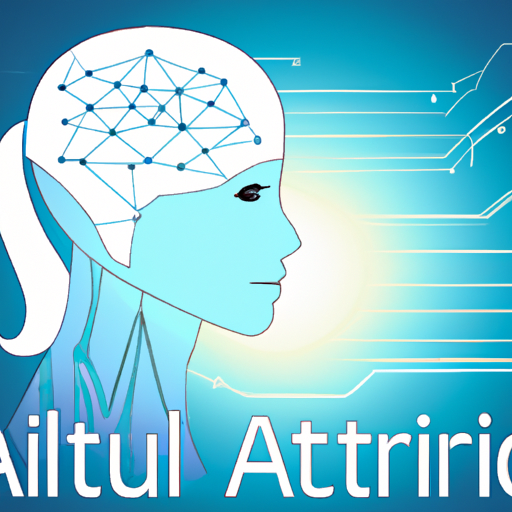-
Table of Contents
- Introduction
- Exploring the Potential Benefits and Risks of AI for Society and Individuals
- The Ethical Considerations of AI and Its Impact on Society
- The Impact of AI on Society and Individuals
- The Role of Society in Shaping the Future of AI
- How Can Individuals Help Shape the Future of AI?
- Conclusion
“Together, we can create a brighter future for AI – one that is shaped by the collective power of individuals and society.”
Introduction
The role of individuals and society in shaping the future of Artificial Intelligence (AI) is an important and complex topic. AI has the potential to revolutionize the way we live, work, and interact with each other, and it is essential that individuals and society have a say in how it is developed and used. This essay will explore the various ways in which individuals and society can shape the future of AI, from influencing the development of ethical standards to advocating for responsible use of AI technology. It will also discuss the potential risks and benefits of AI, and how individuals and society can work together to ensure that AI is used for the benefit of all.
Exploring the Potential Benefits and Risks of AI for Society and Individuals
The potential benefits and risks of artificial intelligence (AI) for society and individuals are vast and complex. AI has the potential to revolutionize the way we live, work, and interact with one another. It can be used to automate mundane tasks, improve decision-making, and even create new products and services. However, it also carries with it a number of risks, including the potential for job displacement, privacy concerns, and the potential for misuse.
The potential benefits of AI for society are numerous. AI can be used to automate mundane tasks, freeing up time for people to focus on more creative and meaningful work. It can also be used to improve decision-making, allowing for more accurate and efficient decisions. AI can also be used to create new products and services, such as personalized healthcare and autonomous vehicles. In addition, AI can be used to improve public safety, by helping to detect and prevent crime.
The potential risks of AI for society and individuals are also significant. AI has the potential to displace jobs, as automation replaces human labor. This could lead to increased unemployment and economic inequality. In addition, AI can be used to invade people’s privacy, as data collected by AI systems can be used to target individuals for marketing or other purposes. Finally, AI can be used for malicious purposes, such as creating autonomous weapons or manipulating public opinion.
In conclusion, the potential benefits and risks of AI for society and individuals are vast and complex. It is important to consider both the potential benefits and risks when evaluating the use of AI. By doing so, we can ensure that AI is used responsibly and ethically, and that its potential is maximized for the benefit of all.
The Ethical Considerations of AI and Its Impact on Society
The development of artificial intelligence (AI) has been a major breakthrough in the field of technology, and its potential applications are vast. However, the ethical considerations of AI and its impact on society must be taken into account.
AI is a form of technology that is designed to mimic human behavior and decision-making. It is used in a variety of applications, from self-driving cars to facial recognition software. As AI becomes more advanced, it is increasingly being used to make decisions that have a direct impact on people’s lives. This raises ethical questions about the use of AI and its potential to cause harm.
One of the primary ethical considerations of AI is the potential for bias. AI systems are often trained on data sets that contain inherent biases, which can lead to decisions that are unfair or discriminatory. For example, facial recognition software has been found to be less accurate in recognizing people of color, which could lead to false arrests or other forms of discrimination.
Another ethical consideration is the potential for AI to be used for malicious purposes. AI can be used to create malicious software that can be used to steal data or disrupt systems. It can also be used to create autonomous weapons that can make decisions without human input.
Finally, there is the potential for AI to be used to manipulate people. AI can be used to create targeted ads or to spread false information, which can have a significant impact on people’s opinions and behavior.
The ethical considerations of AI and its impact on society are complex and far-reaching. It is important for governments, businesses, and individuals to consider the potential implications of AI before implementing it. It is also important to ensure that AI systems are designed and implemented in a way that is fair and equitable.
The Impact of AI on Society and Individuals
The impact of artificial intelligence (AI) on society and individuals is far-reaching and complex. AI has the potential to revolutionize the way we live, work, and interact with one another. It can be used to automate mundane tasks, improve decision-making, and even create new products and services.
At the same time, AI can also have a negative impact on society and individuals. For example, AI can lead to job displacement and increased inequality. It can also be used to manipulate people and spread misinformation.
The potential benefits of AI are vast. AI can be used to automate mundane tasks, freeing up people’s time for more creative pursuits. It can also be used to improve decision-making, allowing businesses to make better decisions faster. AI can also be used to create new products and services, such as self-driving cars and personalized healthcare.
At the same time, AI can also have a negative impact on society and individuals. For example, AI can lead to job displacement and increased inequality. As AI becomes more advanced, it can replace human labor in many industries, leading to job losses and increased economic inequality. AI can also be used to manipulate people and spread misinformation. This can lead to a decrease in trust in institutions and a rise in political polarization.
In order to ensure that AI is used responsibly and ethically, it is important to develop regulations and guidelines for its use. Governments, businesses, and individuals must work together to ensure that AI is used for the benefit of society as a whole.
In conclusion, the impact of AI on society and individuals is far-reaching and complex. While AI has the potential to revolutionize the way we live, work, and interact with one another, it can also have a negative impact on society and individuals. In order to ensure that AI is used responsibly and ethically, it is important to develop regulations and guidelines for its use.
The Role of Society in Shaping the Future of AI
The role of society in shaping the future of Artificial Intelligence (AI) is of paramount importance. AI is a rapidly evolving technology that has the potential to revolutionize the way we live, work, and interact with one another. As such, it is essential that society takes an active role in determining the direction of AI development.
Society can shape the future of AI in a number of ways. Firstly, it can provide guidance on the ethical and moral implications of AI. This includes setting standards for the use of AI in areas such as healthcare, education, and employment. It is also important to ensure that AI is used responsibly and ethically, and that its development is not used to exploit vulnerable populations.
Secondly, society can provide input on the types of AI applications that should be developed. This includes determining which areas of society should benefit from AI, and which should not. For example, AI could be used to improve healthcare, but it could also be used to automate certain jobs, which could lead to job losses. It is important to consider the implications of such decisions before implementing them.
Finally, society can provide input on the regulation of AI. This includes setting standards for the use of AI in areas such as data privacy, security, and safety. It is also important to ensure that AI is used responsibly and ethically, and that its development is not used to exploit vulnerable populations.
In conclusion, society has an important role to play in shaping the future of AI. By providing guidance on ethical and moral implications, determining which areas of society should benefit from AI, and setting standards for the regulation of AI, society can ensure that AI is used responsibly and ethically, and that its development is not used to exploit vulnerable populations.
How Can Individuals Help Shape the Future of AI?
Individuals can help shape the future of Artificial Intelligence (AI) in a variety of ways. Firstly, individuals can stay informed about the latest developments in AI and its potential applications. This will help them to understand the implications of AI and how it can be used responsibly.
Secondly, individuals can participate in public debates and discussions about AI. This will help to ensure that the public is aware of the potential risks and benefits of AI and that their voices are heard in the decision-making process.
Thirdly, individuals can support research and development in AI. This could include donating to organizations that are researching AI, or volunteering to help with research projects.
Finally, individuals can use AI responsibly. This means using AI in ways that are ethical and that respect the rights of individuals. It also means being aware of the potential risks of AI and taking steps to mitigate them.
By staying informed, participating in public debates, supporting research, and using AI responsibly, individuals can help shape the future of AI in a positive way.
Conclusion
In conclusion, the role of individuals and society in shaping the future of AI is critical. Individuals have the power to shape the development of AI by making informed decisions about how they use and interact with AI technology. Society, on the other hand, has the power to shape the development of AI by setting regulations and standards that ensure the ethical use of AI. By working together, individuals and society can ensure that AI is used responsibly and ethically, and that it is used to benefit humanity.



